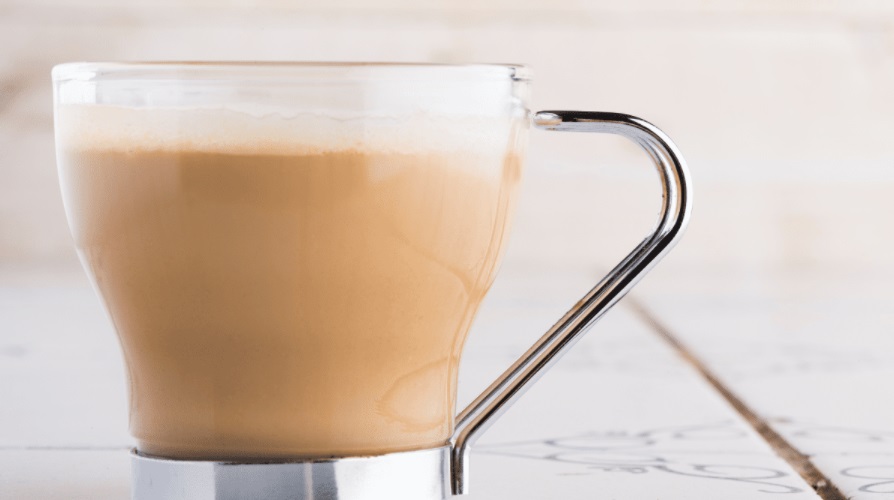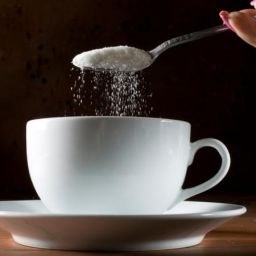
Have you ever wondered what it’s like to brew coffee with milk instead of water? This method isn’t just a quirky alternative; it’s a full-blown experiment in taste and texture that coffee enthusiasts love to explore. The curiosity around using milk lies in the creamy, rich flavor it promises, offering a twist to your usual coffee routine. Let’s dive into this brewing method, exploring how it changes the coffee experience and what you need to consider to get it just right.
Key Takeaways on Brewing Coffee with Milk
- Taste Differences: Brewing coffee with milk instead of water often results in a creamier and smoother beverage but can sometimes yield a weaker coffee flavor. This is because milk can dilute the intensity of the coffee’s robust notes.
- Suitable Methods: Not every coffee brewing method is ideal for using milk. Techniques that allow for gentle heating and slow integration, like the French press or cold brew, are better suited than those requiring high heat or pressure.
- Temperature Control: Managing the temperature when brewing coffee with milk is crucial. Milk should be heated gently to avoid scalding, which can spoil both its taste and nutritional value. Keeping the milk below boiling point while ensuring it’s hot enough to extract the coffee flavors effectively is a delicate balance.
How to Brew Coffee Using Milk
Brewing coffee with milk instead of water can enrich your coffee experience by adding creaminess and a soft texture to your daily cup. Here’s how you can master different brewing methods using milk:
- French Press: Begin by gently heating your milk—avoid letting it boil to maintain its sweet flavor. Use a finer grind of coffee than you would normally use with water because milk can dilute the coffee’s strength. Once your milk is heated to just below boiling, pour it over the coffee grounds in the French press. Let it steep for about 4-5 minutes before pressing down the plunger. This method extracts rich flavors and gives a creamy texture to your coffee.
- Cold Brew: For a cold brew with milk, mix coarse coffee grounds with cold milk in a jar. Because milk is thicker and less acidic than water, let it steep in the refrigerator for at least 12-18 hours to fully extract the coffee’s flavors. This method makes a smooth and refreshing coffee that’s less bitter and naturally sweeter than its water-based counterpart.
- Instant Coffee: If you’re in a hurry, instant coffee with milk is the quickest option. Heat the milk to just below boiling and pour it over your instant coffee granules. Stir well until the coffee dissolves completely. This method is great for those looking for a quick, creamy coffee without the wait.
Challenges and Solutions When Brewing Coffee with Milk
When brewing coffee with milk, you may encounter a few challenges such as scalding or curdling of the milk and the difficulty of cleaning your brewing equipment afterward. Here are some tips to handle these issues:
Avoiding Scalding: To prevent milk from scalding, heat it slowly and monitor the temperature closely. Aim for a temperature between 140°F and 160°F, which is hot enough to brew the coffee without burning the milk. Using a thermometer can help you keep track of the temperature accurately.
Preventing Curdling: Keep the heat moderate to avoid curdling, especially if you are using lower-fat or non-dairy milk. Stirring constantly can also help maintain an even temperature throughout the milk, reducing the risk of curdling.
Cleaning Equipment: Milk residues can be sticky and hard to clean, particularly from machines like coffee makers and French presses. To prevent this, rinse your equipment immediately after use with hot water. For a deeper clean, use a mixture of water and vinegar occasionally to dissolve milk residues that can clog your machine.
Comparison of Coffee Brewed with Milk vs. Water
When it comes to brewing coffee, the choice between milk and water can significantly affect the final cup’s taste, texture, and body. Coffee brewed with water is sharp, clear, and can exhibit a range of flavors from acidic to bitter, depending on the beans and brewing method. On the other hand, using milk softens these flavors, resulting in a creamier, richer, and smoother texture but often mutes the coffee’s inherent characteristics.
Milk impacts the extraction process differently than water. The fats and proteins in milk interact with coffee oils and flavors differently, often extracting less of the coffee’s bright, acidic notes and more of the deeper, caramel-like flavors. This can make the coffee seem milder and less complex, which might be appealing if you prefer a less intense coffee experience.
The Best Types of Coffee for Milk-Based Brewing
Not all coffee types are equally suited for brewing with milk. If you’re looking to experiment with milk-based brewing, dark roasts are a fantastic choice. These beans are roasted longer, which develops their oils and produces a robust flavor that can stand up to the creaminess of milk without getting overshadowed.
Medium grind size is generally preferable for most milk brewing methods like the French press or cold brew. This grind size provides a good balance between surface area and extraction time, allowing the milk to pull out enough flavor without over-extracting and becoming bitter.
When choosing beans, look for those with chocolatey or nutty profiles, as these naturally complement the sweetness and body of milk. Beans from regions like Brazil or Indonesia, known for their lower acidity and fuller body, often yield the best results when brewed with milk.
FAQs
Can I use any type of milk?
Yes, you can use any type of milk—cow’s milk, goat milk, or any plant-based alternative like almond, soy, or oat milk. Each type will bring a unique flavor and texture to the coffee, so you might want to experiment to find your favorite.
What are the best coffee-to-milk ratios?
A general guideline is to use a 1:15 coffee-to-milk ratio. This means for every gram of coffee, use 15 grams (or milliliters) of milk. Adjust according to taste preference and the strength of the coffee desired.
Can dairy alternatives be used?
Absolutely! Non-dairy milks such as almond, soy, oat, and coconut milk can be used to brew coffee. Keep in mind that each type may alter the flavor and consistency of your coffee, and some might not heat as well as cow’s milk without curdling.
Final Thoughts
Brewing coffee with milk instead of water is an excellent way to soften the beverage’s acidity, enhance its smoothness, and introduce a creamy texture that many find delightful. While the benefits include a richer body and a potentially more palatable taste for those sensitive to bitterness, the drawbacks could be a muted coffee flavor and a less complex profile.









